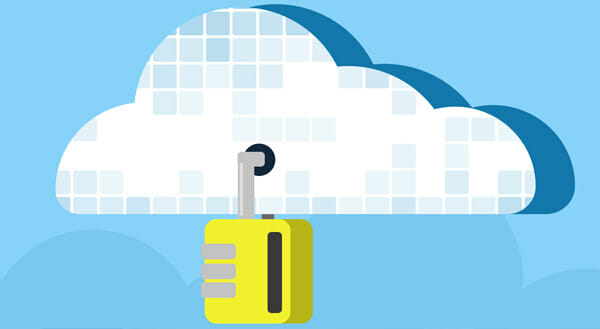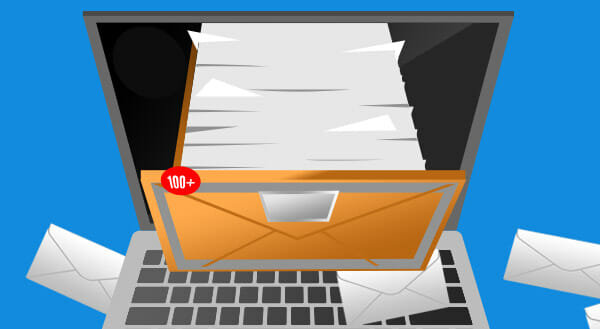3 Top Reasons for Onsite or Remote Computer Repair
 No one wants to experience computer problems. Whether it’s used for personal or business use, your computer is likely indispensable. Essential customer files are on there! All your downloaded music! The family photos! Vendor contracts and employee payroll information! Compounding the crisis is the hassle of going to get the computer fixed. That’s why we offer On-Demand onsite or remote repair services.
No one wants to experience computer problems. Whether it’s used for personal or business use, your computer is likely indispensable. Essential customer files are on there! All your downloaded music! The family photos! Vendor contracts and employee payroll information! Compounding the crisis is the hassle of going to get the computer fixed. That’s why we offer On-Demand onsite or remote repair services.
When You Need Computer Repair
Regrettably, there are common computer problems you might encounter at home or work:
A blue computer screen with some white text, aka the “Blue Screen of Death,” or a STOP error. This one’s scary. It could indicate failing hardware, damaged software, driver problems and more. Don’t know what any of that sentence meant? That’s OK. We do!
- Having trouble installing new applications.
- The computer is running so slow a turtle would beat it in a foot race.
- Your applications are acting possessed and are unpredictable.
- The keyboard, mouse, or printer are not working properly.
- Your computer keeps restarting on you.
- Downloads are taking forever.
- You can’t open that attachment from your boss.
- The computer freezes or shuts off suddenly.
- The graphics on the computer screen look wonky.
- Your computer is making noises mimicking an old clunker car.
Troubleshooting these problems to diagnose what is really going on can be challenging. It depends on how much you know about computers to begin with. Since you rely on your computer for so much, it’™s a good idea to consult with computer repair experts.
Why Onsite or Remote Computer Repair
#1 Convenience.
You don’t need to worry about doing more damage when you unplug everything and drive the computer to a repair shop. You also avoid the commute across town, headache of finding parking, and annoyance of waiting in line. Whether a business office or home, our computer repair experts can come to you.
This is more convenient for you. You don’t have to lug the computer to a store and back only to have to set it up all over again. Your computer stays right where you typically use it. When we’re done, you can just push the power button and get going as if nothing happened.
#2 Context.
Seeing your computer in its natural habitat helps our experts too. Sometimes the issue isn’t internal to the computer. So, we wouldn’t be able to properly diagnose the problem if you brought the computer in to us.
For example, the hiccup could be caused by a faulty power board or misbehaving printer. Unless you thought to bring those into the computer store too, the problem wouldn’t be replicable. And nothing’s worse than going to the trouble of getting help only to say “well, it doesn’t seem to be that annoying thing right now.” That’s when the expert looks at us like we’re crazy and says “next time, just try turning it on and off again.”
#3 Cut Downtime.
When the computer repair service comes to your door, you can also reduce downtime. Whether the computer is essential for homework at home or business services, you probably can’t imagine being without it for a few days. It’s like losing a limb! Onsite computer repair aims to fix the problem in just a few hours, without taking the computer away.
We can handle most repairs onsite. Sometimes we can fix minor issues remotely. In some cases, it’s more cost-effective to bring the computer back to base. We still save you hassle by dropping the computer back off to you. We’ll also set everything back up again when we return your computer. That way you don’t have to worry about which cord goes where!
We hope you never need computer repairs. But, if you’re ever facing an error message you don’t understand or your computer has ground to a halt, give us a call at (416) 645-2469, (905) 667-0441 or email us. Our computer repair service experts will be happy to schedule a time to come to you!
Want to be notified when our next blog is posted, sign up here.









 Security and privacy are at the very top of our priorities when considering business IT. Major data leaks are in mainstream news on a near-daily basis and hundreds of thousands, if not millions, of customers are impacted every time they happen. Our number one goal is to make sure our businesses are kept out of danger.
Security and privacy are at the very top of our priorities when considering business IT. Major data leaks are in mainstream news on a near-daily basis and hundreds of thousands, if not millions, of customers are impacted every time they happen. Our number one goal is to make sure our businesses are kept out of danger.